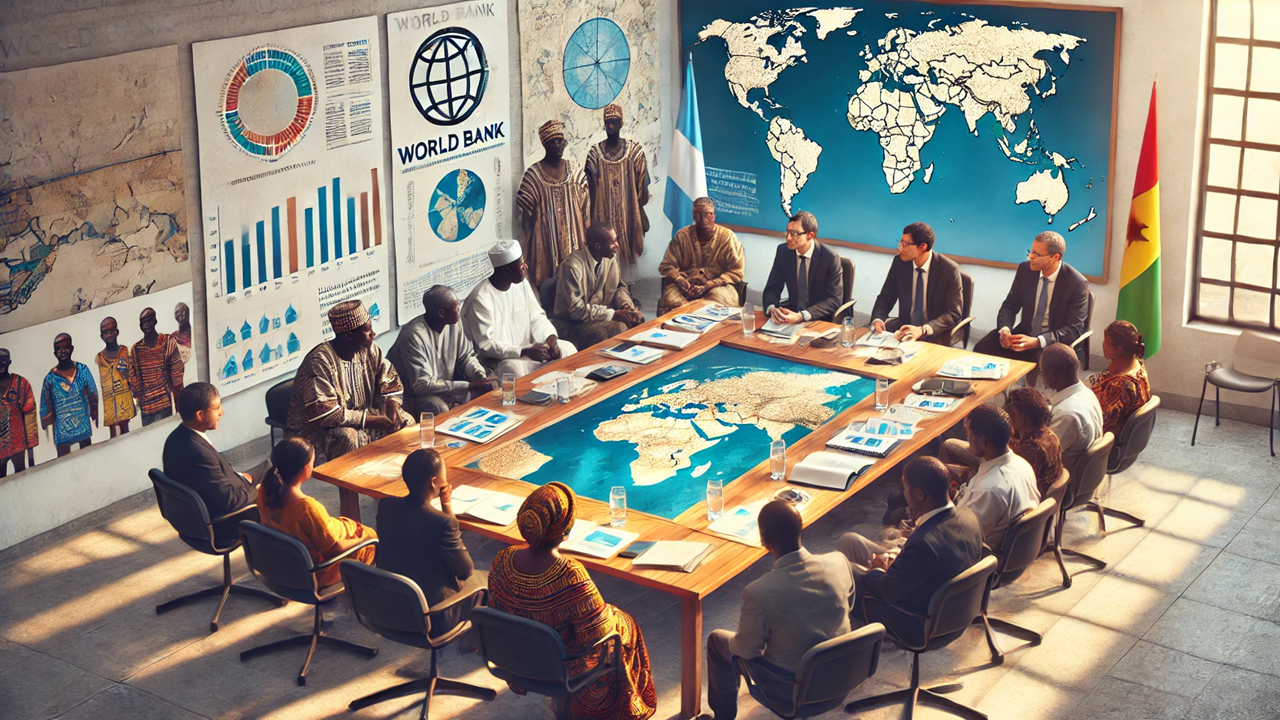World Bank Faces Declining Perceptions in Guinea-Bissau Amid Calls for Stronger Engagement
The FY 2024 Guinea-Bissau Country Opinion Survey Report highlights declining familiarity and trust in the World Bank Group’s activities in Guinea-Bissau. Stakeholders call for more inclusive engagement, better alignment with national priorities, and increased support for capacity building. The report reveals shifting development priorities, emphasizing the need for improved communication and stronger partnerships with local stakeholders to enhance WBG’s impact in the country.

The World Bank Group (WBG) is facing a mixed response in Guinea-Bissau, according to the FY 2024 Guinea-Bissau Country Opinion Survey Report. Conducted between November 2023 and March 2024, the survey highlights declining trust and familiarity with the institution’s activities in the country, even as stakeholders emphasize the need for more effective collaboration and tailored support. The survey, which gathered the opinions of 260 respondents from diverse sectors, aimed to capture perceptions of the WBG’s role, relevance, and impact on development in Guinea-Bissau.
While the WBG remains among the top five trusted institutions, trust ratings have dropped significantly compared to previous years. Stakeholders are calling for a more inclusive approach, urging the WBG to increase its engagement with local communities, civil society, and the private sector to better align with Guinea-Bissau’s pressing development needs.
Declining Familiarity and Trust
One of the survey’s key findings is the significant drop in familiarity with the WBG’s work in Guinea-Bissau compared to the FY21 survey. Respondents who collaborated with the WBG reported a familiarity score of 5.5 (on a 10-point scale), down from 6.8 in the previous survey. Those not directly involved with the WBG indicated even lower levels of awareness, reflecting a gap in communication and outreach. The decline in familiarity has been attributed to limited engagement and visibility of WBG’s activities on the ground.
Similarly, trust in the WBG has also weakened, with respondents rating their trust at 5.5, compared to 6.4 in the earlier survey. This decrease was more pronounced among stakeholders who do not collaborate with the WBG, pointing to the need for the institution to build stronger relationships and improve transparency. Government officials, multilateral agencies, and civil society representatives have consistently rated WBG’s effectiveness and relevance lower than before.
Shifting Development Priorities
The survey also shed light on the changing development priorities in Guinea-Bissau. While education and health continue to top the list, stakeholders have shown increasing concern for energy access and water and sanitation. The prioritization of water and sanitation has seen a tenfold increase, reflecting the urgent need for sustainable infrastructure in these areas.
Education, health, and agriculture remain critical focus areas, with stakeholders stressing the importance of building local capacity and ensuring long-term sustainability. Energy has emerged as a higher priority, underscoring the country's need for a more reliable power supply to support economic growth and social development.
Another key area where the WBG’s involvement is sought is the private sector. Stakeholders highlighted the need for enhanced support to revitalize the private sector, particularly through financial assistance and capacity-building initiatives. There is a strong push for the WBG to contribute more actively to job creation, infrastructure development, and governance reforms.
Recommendations for Improved Impact
To maximize its impact, the WBG has been advised to adopt a more localized approach, focusing on collaboration with a broader spectrum of stakeholders. Survey respondents recommended that the WBG,
Enhance Engagement with Civil Society and Local Governments: The survey points to the need for the WBG to work closely not just with the national government but also with local authorities, NGOs, and community-based organizations. This approach is seen as essential for improving transparency, monitoring, and project management.
Align Interventions with National Priorities: Stakeholders emphasized that WBG’s programs must align more closely with Guinea-Bissau’s development strategies, particularly in education, health, and energy. Respondents noted that this would help increase the institution’s relevance and impact on the ground.
Improve Communication and Outreach: Given the decline in familiarity, the WBG should increase its communication efforts, using more accessible channels and ensuring that its message reaches a wider audience. Direct contact, events, and digital platforms were cited as the most effective ways to bridge the communication gap.
Focus on Capacity Building: Capacity development and training emerged as the most valued WBG instruments. Stakeholders see the need for greater technical assistance and skills training to empower local professionals and ensure the sustainability of development projects.
Future Role of the World Bank in Guinea-Bissau
Looking ahead, the survey suggests that the WBG should play a stronger role in supporting infrastructure projects and facilitating private sector growth. Respondents pointed to the need for more robust financial support, better terms for loans, and increased efforts to mobilize resources for key sectors such as health, education, and agriculture.
There was also a strong call for the WBG to enhance its monitoring and evaluation mechanisms to ensure accountability and transparency in project implementation. Some respondents recommended that the WBG focus on building stronger partnerships with non-state actors to promote a more inclusive development model.
The FY 2024 Guinea-Bissau Country Opinion Survey Report reveals both challenges and opportunities for the World Bank in Guinea-Bissau. While trust and familiarity have declined, stakeholders remain optimistic about the WBG’s potential to make a positive impact. The survey’s findings underscore the need for the WBG to recalibrate its strategies, strengthen local partnerships, and realign its programs with Guinea-Bissau’s evolving development priorities.
- FIRST PUBLISHED IN:
- Devdiscourse










